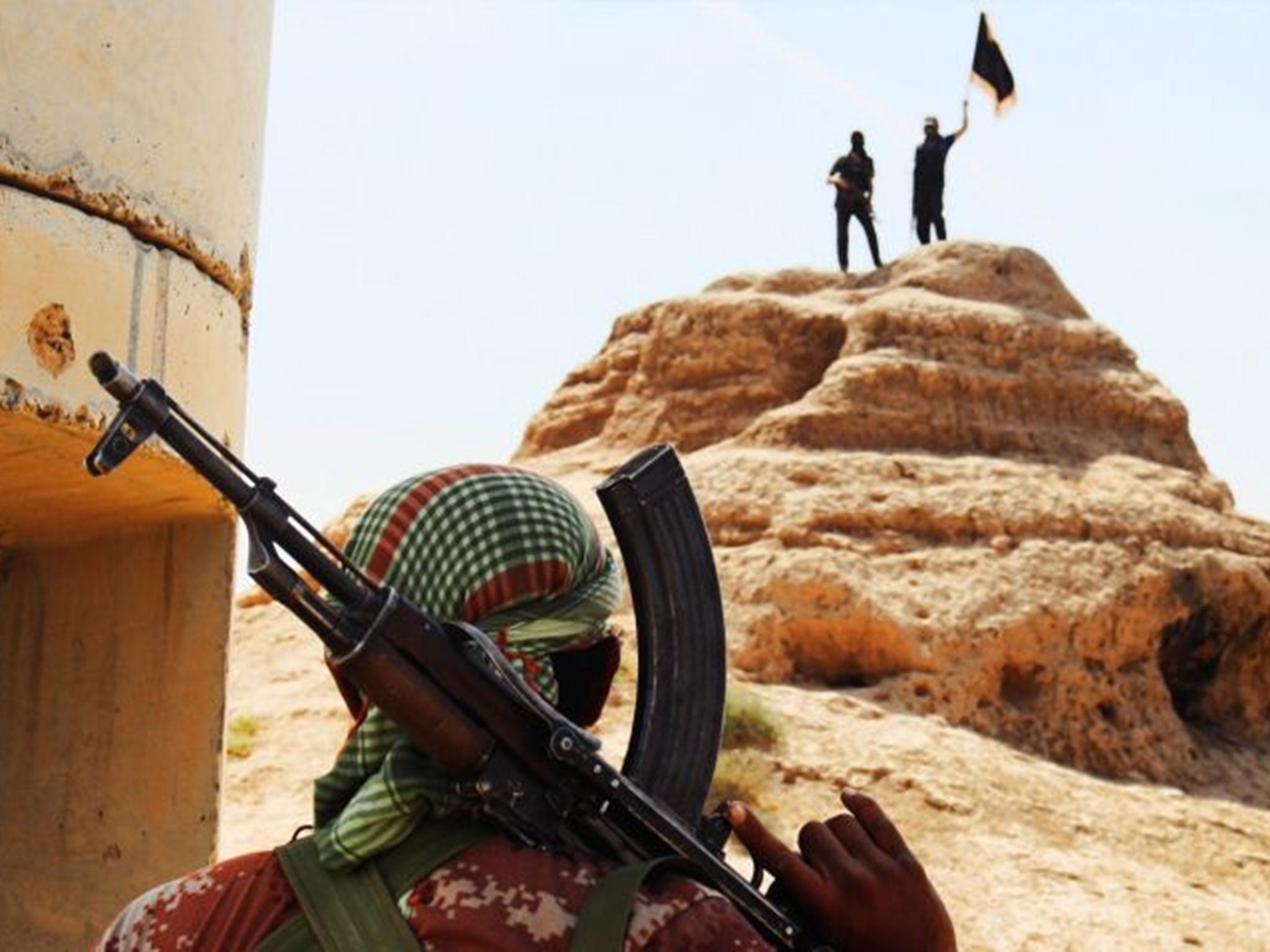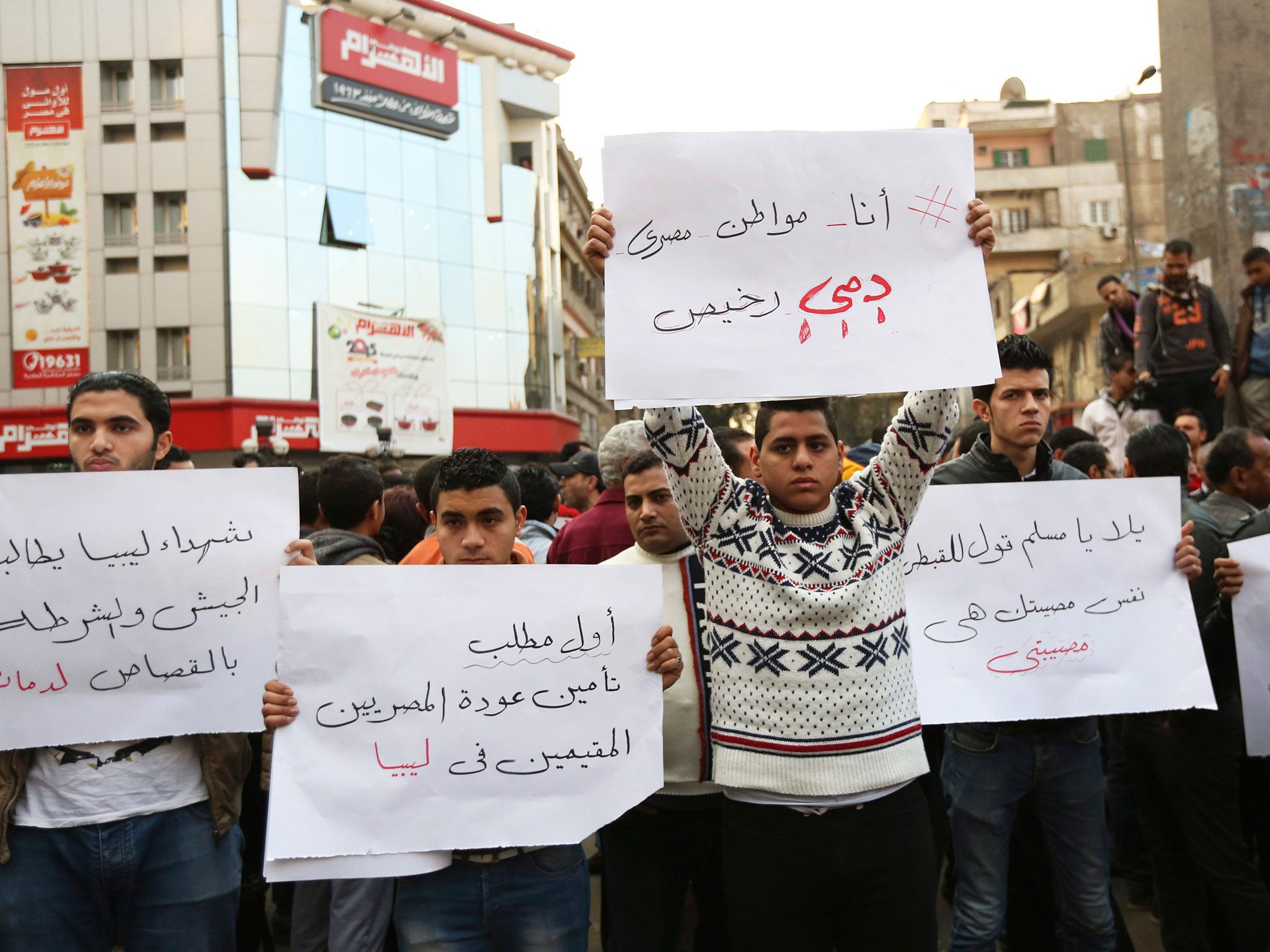Isis has provoked an Arab alliance to bomb the West’s enemies
Obama can take satisfaction in seeing ‘moderate’ Middle Eastern friends flying alongside

Your support helps us to tell the story
From reproductive rights to climate change to Big Tech, The Independent is on the ground when the story is developing. Whether it's investigating the financials of Elon Musk's pro-Trump PAC or producing our latest documentary, 'The A Word', which shines a light on the American women fighting for reproductive rights, we know how important it is to parse out the facts from the messaging.
At such a critical moment in US history, we need reporters on the ground. Your donation allows us to keep sending journalists to speak to both sides of the story.
The Independent is trusted by Americans across the entire political spectrum. And unlike many other quality news outlets, we choose not to lock Americans out of our reporting and analysis with paywalls. We believe quality journalism should be available to everyone, paid for by those who can afford it.
Your support makes all the difference.Just when Washington and Nato feared they were going to be bombing Isis on their own, the self-styled “Islamic State” has single-handedly created a new Arab military alliance to bomb the West’s enemies.
By its seaside slaughter of 21 Egyptian Christians, Isis has brought ex-Field Marshal President Abdel Fattah al-Sisi into the war against it. And by burning Jordan’s captured pilot alive, it provoked 56 more air strikes from Jordan, a return to action by the UAE and a flight of Bahraini jets to Amman to help in the struggle. In what is almost a sideshow, Libya’s air force – supporting one of its country’s two rival governments – continues to bomb Isis fighters, but now in co-operation with Egypt.
So President Obama and the Pentagon can, it seems, take satisfaction in seeing their “moderate” friends in the Middle East flying alongside them in their latest version of the “war on terror”. So far, so good. No “boots on the ground”, as the now-hackneyed expression goes. No Western lives in danger – save for the pitiful handful of hostages still held in Raqaa. Of course, any Iraqi who opposes the “Islamic State”, any Iraqi Shia, and any Christian – Libyan or otherwise – who falls foul of Isis’s sectarian hatred, will suffer accordingly. But that will be Arab killing Arab. Americans are safe. So are the Israelis.
But crystal balls almost always break in the Middle East – especially when, to expressions of outrage and shouts of “barbarism”, fighter jets take to the air. Isis, in all its various mutations, can now claim that it is fighting its enemies in Iraq, Syria, Arabia (Yemen), Egypt (Sinai), Libya and Algeria. It boasts as much, even warning that France and “French-speakers” – a clear allusion to Algeria’s ruling military-bourgeois elite – must expect to be attacked. Italy, too. And remember all those thousands of extra refugees who’ll now be washing up on Italian shores.
But let’s start with Egypt. Ever since the now-elected President Sisi overthrew the previous democratically elected President, Mohamed Morsi, in 2013, Isis and its satellites have been fighting a ferocious campaign against Egyptian security forces in the Sinai peninsula. Sisi likes to conflate Isis with the Muslim Brothers, which is bad news for the thousands of Brotherhood supporters thronging Egypt’s jails – but bad news, too, for the Sisi regime. Islamists have shown themselves strong enough in the Sinai and they are already setting off bombs in Cairo – without acquiring new allies among the Brotherhood courtesy of the Egyptian President.
The Egyptian air strikes on “training camps and weapons caches” – by extraordinary circumstances, that’s exactly what Jordan’s air force claims to be targeting – may have been revenge for the murder of the 21 Christian Copts. And we all knew that women and children would be killed by the Egyptian planes.
But now Isis will want revenge for the Egyptian air raids. Will there be more bombs in Cairo itself? Definitely. Will there be assassination attempts against Sisi? Almost certainly. When the ex-dictator Hosni Mubarak fought his native Islamist enemies in the 1990s, he miraculously survived 15 murder attempts, one of them in Addis Ababa, at least two of them by soldiers belonging to the same Egyptian army from whose ranks came President Anwar Sadat’s killers in 1981. Mubarak was lucky. With Isis as his enemy, Sisi will now have to be even luckier.
After all, four months ago Islamists massacred 28 Egyptian security men in Sinai. Then just over two weeks ago, the “Islamic State’s” Egyptian militiamen butchered at least 30 more in a massive bombing at a military hotel and base in al-Arish. On that occasion, Sisi flew back from a conference in Ethiopia as his soldiers were being flown in pieces back to Cairo in a fleet of military aircraft. Egypt didn’t launch its war with Isis in yesterday’s air raids – the two sides had been killing each other for more than a year.

Shorn of its window-dressing, however, the Arab alliance does not look so impressive. UAE planes may have flown to Amman – but are they to be crewed by Emiratis or Jordanians? Bahrain has also sent some planes to Jordan; but this was a minuscule kingdom that felt so threatened by its own Shia majority in 2011 that it had to call in the Saudi army to occupy part of the island and protect the Sunni royal government.
Isis would no doubt like to provoke Sunni-Coptic armed violence in Egypt, reigniting a miniature war which has been smouldering for decades. An unlikely scenario. But Egypt’s support for the Libyan military of General Khalifa Haftar – who in turn supports the internationally-recognised Benghazi government – will only deepen the Libyan civil conflict.
But for Arabs, there is a clear message in all these alliances. Washington has an American-trained general in charge of the Libyan air force, an American-trained former field marshal and president in charge of Egypt, an American-educated and British-trained king in Jordan and two wealthy emirates with huge US investments – one of them headquarters to the US fleet in the Gulf – in the battle. Only that well-known dictator who has been fighting Isis for longer than any of them – Bashar al-Assad of Syria – is left out. For now.
Join our commenting forum
Join thought-provoking conversations, follow other Independent readers and see their replies
Comments